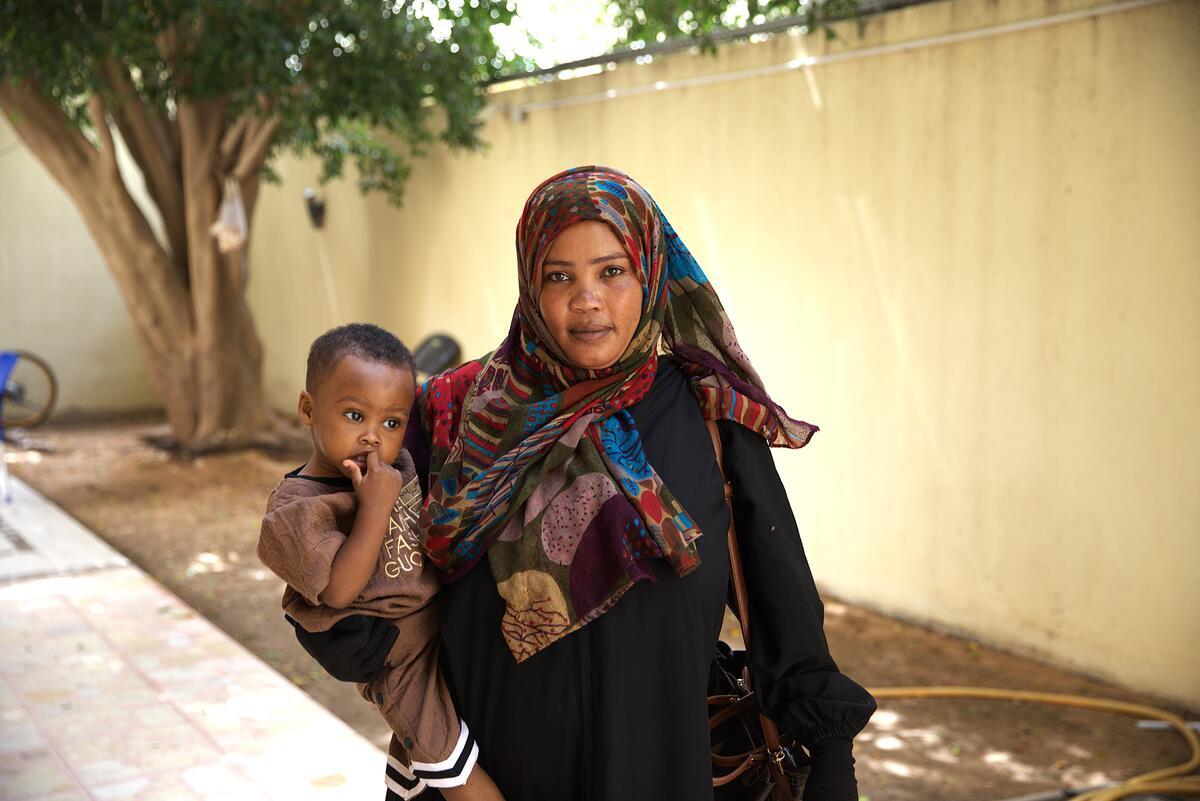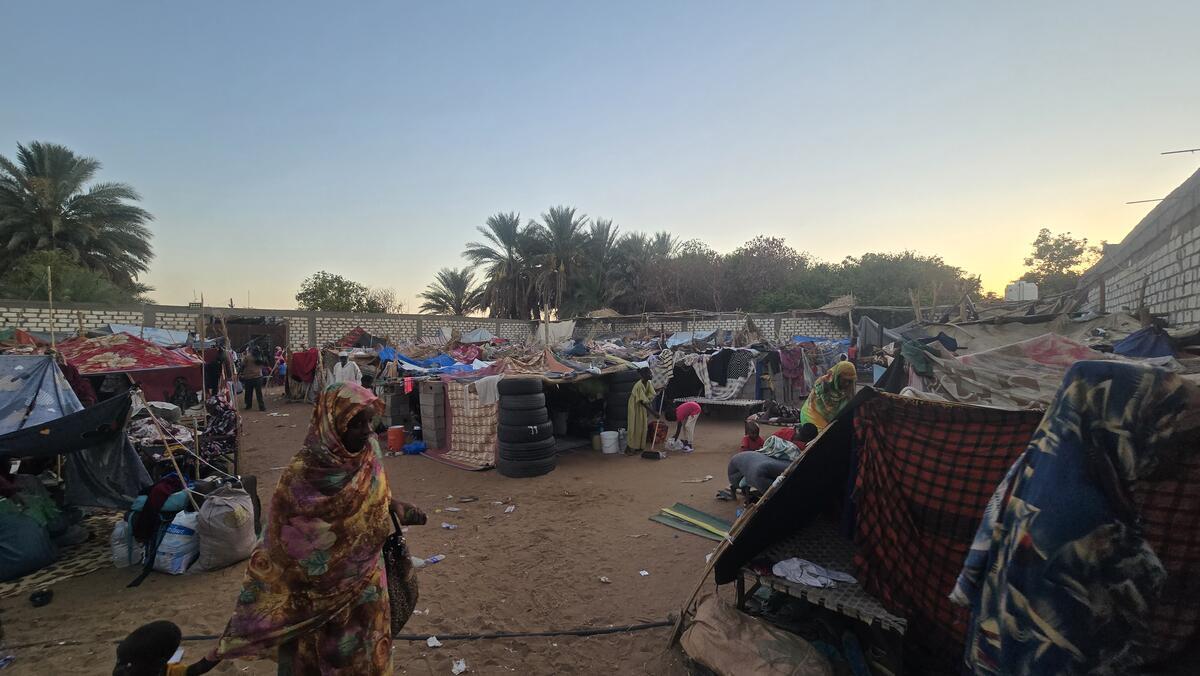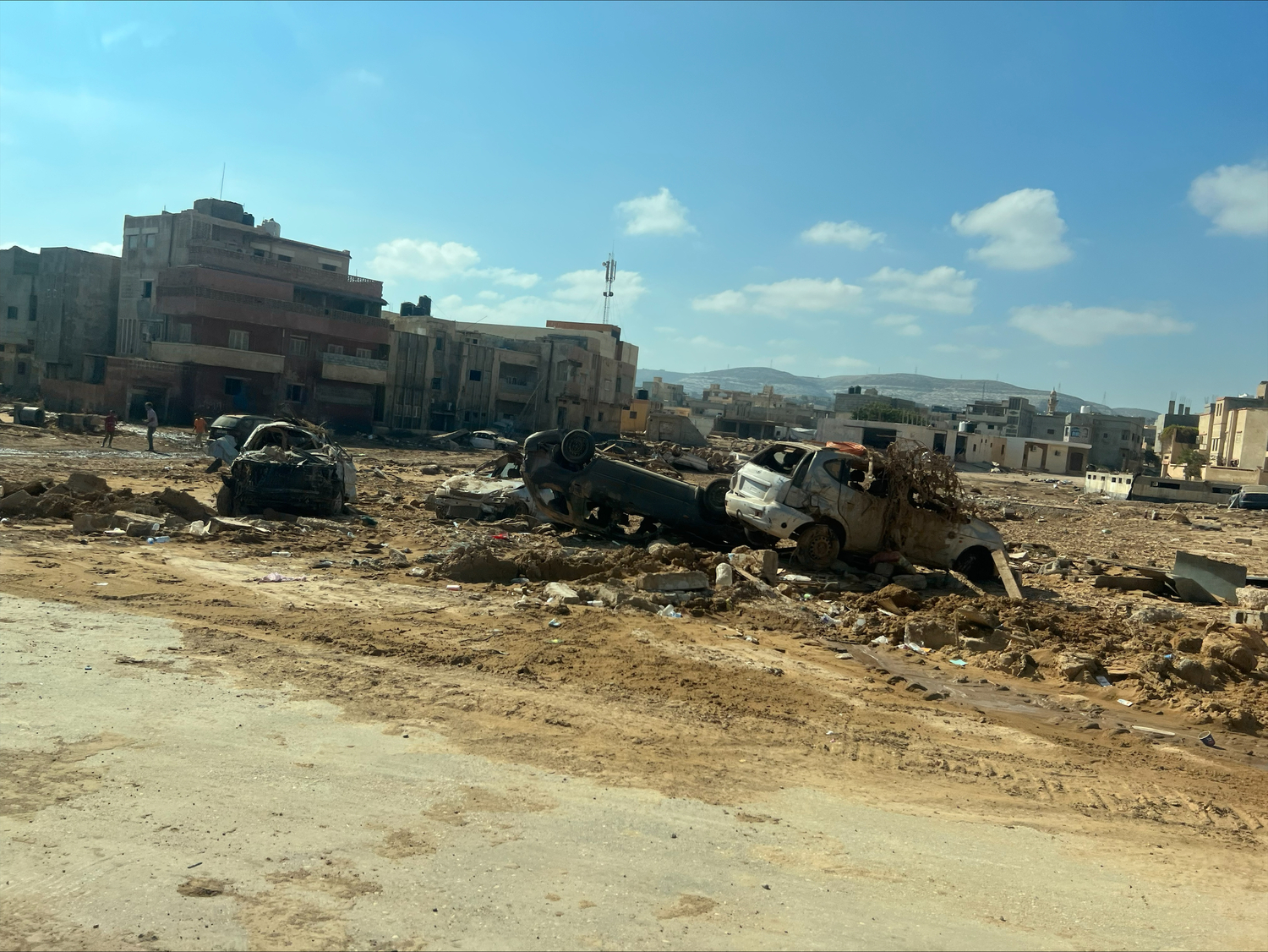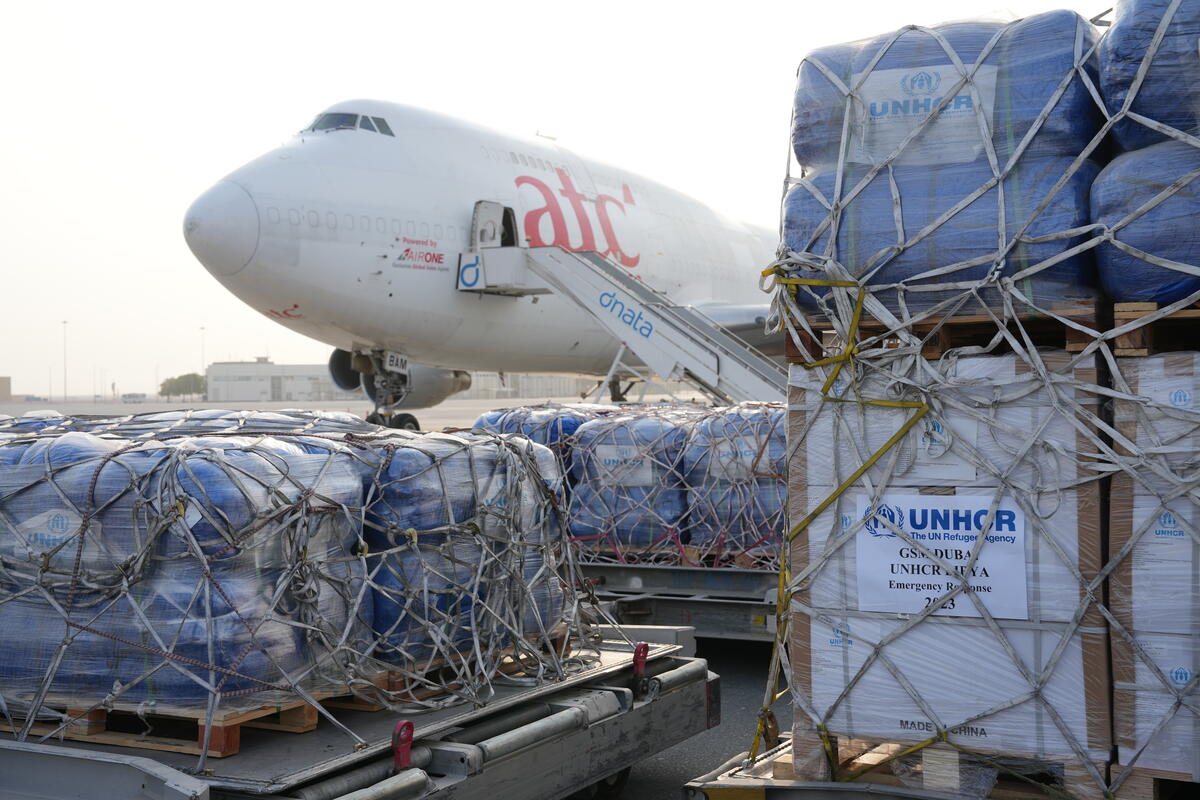UN teams find displaced people, growing needs in Libya's conflict zones
UN teams find displaced people, growing needs in Libya's conflict zones

MISRATA/ZLITAN, Libya, June 7 (UNHCR) - An estimated 74,000 people are displaced in conflict zones south and east of Libyan capital Tripoli as months of fighting and sanctions threaten to deplete basic supplies and services.
UNHCR staff reported these findings after they took part in two inter-agency missions last week to both sides of the battle lines. One mission travelled to Tripoli and displacement sites in government-controlled areas of Zlitan, Al Khums and Gharian. Another mission was to the opposition-controlled city of Misrata.
The Libyan government coordinated and accompanied the UN team on the visit to Zlitan, Al Khums and Gharian. The authorities are assuming the main responsibility for helping an estimated 49,000 displaced people in the Tripoli/Zlitan region.
"Displaced people that UNHCR met seem to be coping, albeit under difficult circumstances," said UNHCR spokesman Adrian Edwards at a news briefing in Geneva Tuesday. He added that most of them are accommodated in hotels, dormitories and seaside homes, and receive assistance from the government and some private charities.
"However, an aid crisis could be looming," he warned. "Despite the fact that warehouses are currently well stocked with basic food items, it is apparent that the combined impact of protracted conflict and sanctions are eroding the government's ability to effectively deliver assistance. The view of the inter-agency mission was that if this situation continues, international aid is likely to be needed in a matter of weeks."
In the Libyan capital, UNHCR staff observed increasing stress levels among the population amid the continuing conflict and a shortage of essential items. There were long queues for petrol, including one that measured 8.2 kilometres long.
On the other side of the battle lines, the Misrata Transitional Council told UNHCR that there are around 25,000 displaced people in the city. Most are staying with relatives and host families. Some local families are hosting up to seven or eight displaced families in their homes, an unsustainable situation given that salary payments stopped in January and banks are not working. Other displaced Libyans are sheltering in schools and unoccupied new buildings.
Mohamed, 47, lived in Misrata's Makasbi neighbourhood with his wife and two daughters before their home was hit by missiles in mid-March and again in April.
"Fortunately, none of us were at home at that time," he said. "We left with some clothes and belongings to Al Zaroog, a safer neighbourhood. We were staying with friends, but they were already hosting seven other families, about 35 people. There was one toilet for all of us. It was just impossible to stay there, the kids were fighting all the time, there was just not enough space.
After three days, together with Mohamed's diabetic mother, they moved into a school that was hosting displaced people. "The local agencies are helping us here, we get food and water, and some private citizens have given us clothes," said Mohamed. "We feel safe here for the moment. But I wonder where we will go when school starts again."
Alternative shelter options are being explored by the Libyan Committee for Humanitarian Relief, local businesses and engineering companies.
UNHCR continues to deliver regular relief by boat from Benghazi to Misrata through local partners, and is ready to support the rebuilding of homes.
Life is slowly recovering in Misrata, with electricity restored to some parts of the city, shops re-opening and youths cleaning up the streets. But the Misrata Transitional Council said the city was facing food and medicine shortages, among other humanitarian needs.
"At the height of the conflict in March and April, we were receiving up to 130 wounded people from the frontline every day," said a doctor working at the Al-Hekma hospital in Misrata. "This has become a war hospital. Now it is a bit better. We are still receiving, on a daily average, some 60 war-wounded, 45 on a 'slow' day."
As with most conflicts, children are often the innocent victims. "We recently treated a six-year-old girl. She was playing in her house when a missile hit, killing her brother and sister, and seriously injuring her mother," said the Misrata doctor. "We had to amputate her right leg, she also has deep wounds on her right arm and hand."
Since the start of the conflict, Misrata's five hospitals have reported 630 deaths and 6,000 injuries, including by unexploded ordinance. Four-fifths of the nurses, mainly foreigners, left the city early on in the crisis and were progressively replaced by medical students.
By Sybella Wilkes in Geneva,
With reporting by Helene Caux in Misrata and Arafat Jamal in Zlitan







